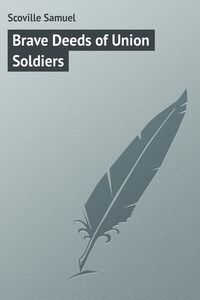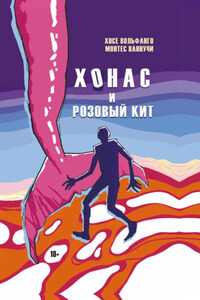CHAPTER I
THE BARE BRIGADE
Kipling wrote one of his best stories on how Mulvaney and his captain with an undressed company swam the Irriwaddy River in India and captured Lungtungpen. It was a brave deed. The average man can't be brave without his clothes.
In the Civil War there was one unchronicled fight where a few naked, shoeless men swam a roaring river, marched through a thorny forest and captured a superior and entrenched force of the enemy together with their guns. This American Lungtungpen happened on the great march of General Sherman to the sea. He had fought the deadly and lost battle of Kenesaw Mountain, and failing to drive out the crafty Confederate General Johnson by direct assault outflanked him and forced him to fall back. Then the Union Army celebrated the Fourth of July, 1864, by the battle of Ruffs Station and drove Johnson back and across the Chattahoochee River. The heavy rains had so swollen this river that all the fords were impassable, while the Confederates had destroyed all boats for miles up and down the river to prevent them from being used by the Union Army and had settled down for a rest from their relentless pursuers. General McCook was commanding the part of the Union line fronting directly on the river. Orders came from General Sherman to cross at Cochran's Ford and Colonel Brownlow of the First Tennessee Regiment was ordered to carry out this command. He was the son of Fighting Parson Brownlow and had the reputation of not knowing what fear was. The attempt was made at three o'clock in the morning. It was raining in torrents and the men at the word of command dashed into the river. The water kept getting deeper and deeper and the bottom proved to be covered with great boulders over which the horses stumbled and round which the cross torrents foamed and rushed. When the men had finally reached the middle of the river and were swimming for dear life, suddenly a company of Confederates on the other side opened up on them at close range. As the bullets zipped and pattered through the water, the floundering, swimming men turned around and made the best of their way back, feeling that this was an impossible crossing to make. Once safely back they deployed on the bank and kept up a scattering fire all that morning against the enemy.
As the day wore on, Colonel Dorr, who commanded the brigade, made his appearance and inquired angrily why the First Tennessee was not on the other side and in possession of the opposite bank. Colonel Brownlow explained that he had made the attempt, that there was no ford and that to attempt to make a swimming charge through the rough water and in the face of an entrenched enemy would be to sacrifice his whole regiment uselessly. Colonel Dorr would listen to no explanations.
"If you and your men are afraid to do what you're told, say so and I'll report to General Sherman and see if he can't find some one else," he shouted and rode off, leaving Colonel Brownlow and his command in a fighting frame of mind. The former called nine of his best men to the rear and it was some time before he was calm enough to speak.
"Boys," he said at last, "we've got to cross that river. It's plain it can't be forded. We've no pontoons and I am not going to have my men slaughtered while they swim, but you fellows come with me and we'll drive those Rebs out of there before dark."
He then gave directions for the rest of his men to keep up a tremendous fire to divert the attention of the enemy. In the meanwhile he and his little squad marched through the brush to a point about a mile up the river behind a bend. There they stripped to the skin and made a little raft of two logs. On this they placed their carbines, cartridge boxes and belts and swam out into the rough water, pushing the little raft in front of them. It was hard going. The water was high, and every once in a while the fierce current would dash and bruise some of the men against the boulders which were scattered everywhere along the bed of the river. The best swimmers, however, helped the weaker ones and they all worked together to keep the precious raft right side up and their ammunition and rifles dry. After a tremendous struggle they finally reached the opposite bank without having seen any Confederates. There they lined up, strapped on their cartridge belts, shouldered their carbines and started to march through the brush. Every step they took over the sharp stones and twigs and thorns was agony and the men relieved themselves by using extremely strong language.
"No swearing, men!" said Colonel Brownlow, sternly.









